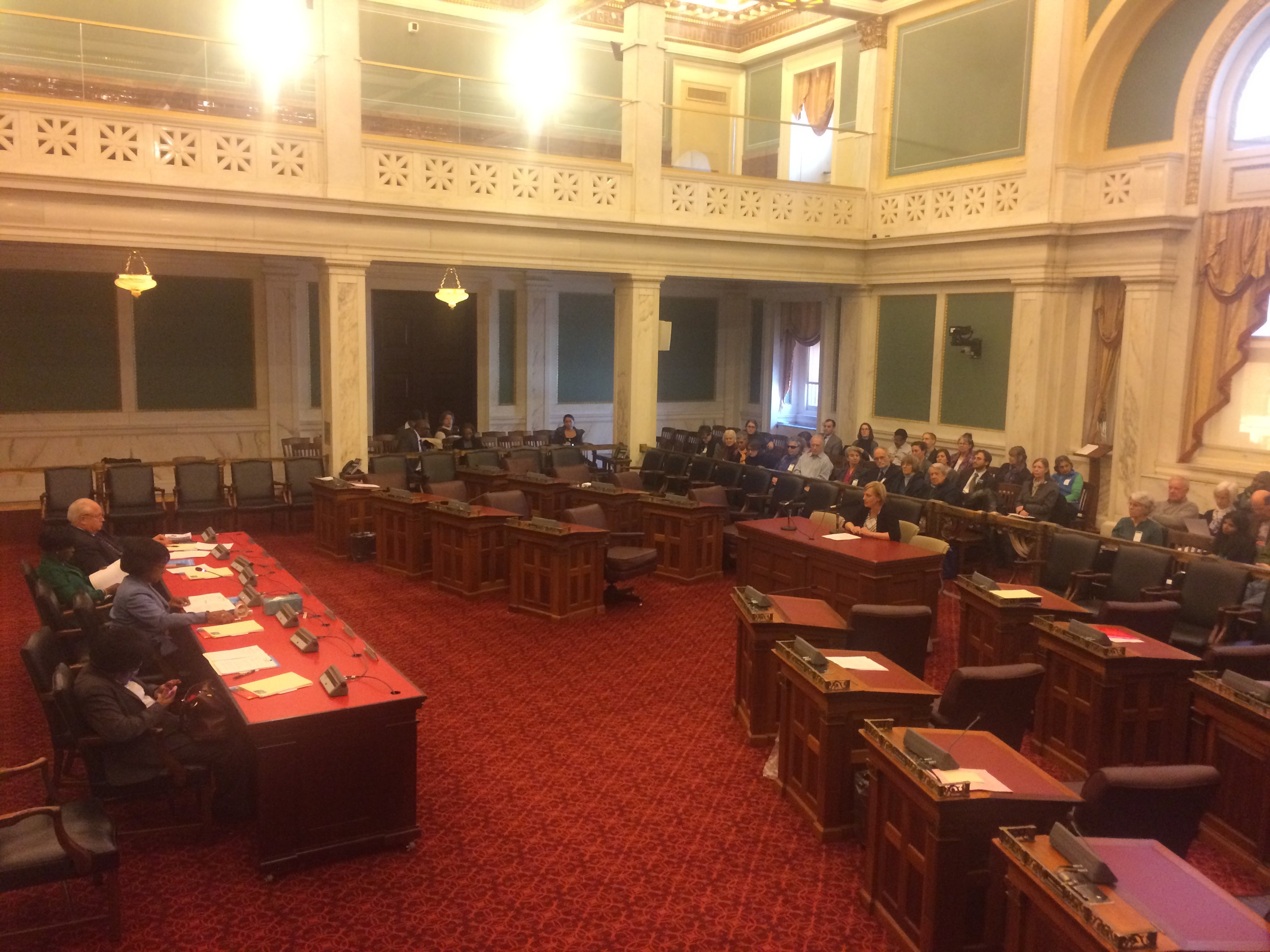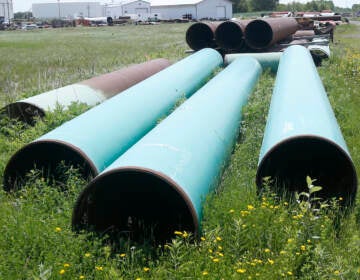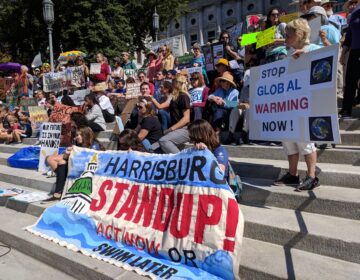Environmental leaders urge City Council to put climate change on ‘front burner’

“Climate is already changing,” said Liz Robinson, executive director Energy Coordination Agency of Philadelphia (ECA), at a Philadelphia City Council hearing held this Wednesday. “As we can all see from the fact that spring arrived in late February, followed by winter in March. And 2016 was the warmest year on record”.
Robinson was the 11th witness to testify in front of City Council’s Committee on the Environment, and just like all the previous witnesses, she asked the council to move climate change from “the back burner to the front burner” in term of city priorities. “Particularly because of the current Trump administration,” Robinson said.
Two weeks ago, Scott Pruitt, President Donald Trump’s head of the Environmental Protection Agency (EPA), questioned basic facts about climate change. And it is expected that the president will soon announce his plans to reverse President Barack Obama’s “stupid” policies to address climate change.
Climate change, however, will impact “the average Philadelphian.” Robinson said look no further than a month of days hotter than 90 degrees, more than a week of days over 100 in less than 10 years. Also look for more asthma and vector diseases, more rain and flooding, higher food prices, damaged infrastructure from sea level rise and storm surge.

“While we talk about climate change,” said Joanne Graham, environmental justice chair for Eastwick Friends & Neighbors Coalition, “for many, that’s a concept. But residents in Eastwick know what climate change is all about. We have been living with it for decades.”
Eastwick has been dealing with pollution and flooding for decades. Graham said some of her neighbors have seen six feet of water in their homes and others can’t afford the extremely high insurance rates required for living in a high-risk flooding zone, FEMA’s Special Flood Hazard Area (SFHA).
“We just beseech you to put attention to the testimony that is given here today,” said Graham, the 15 witness to testify. “We are at a critical juncture and again, while climate change might be a concept, for some, it’s very real.”
Robinson acknowledged the city’s climate change plan and the Office of Sustainability’s (OOS) work on a future Energy Master Plan and Transportation Master Plan, but called them “excellent initial steps,” recommending the city to engage a broad of stakeholders in the planning process.
Promote clean energy, plan to eliminate lead, and ban fracking
Most of the 19 witnesses told members of City Council that Philadelphia can do more to adapt and mitigate climate change, and recommended strategies to do so without spending great amounts of money.
Energy efficiency is a high priority, because it reduces energy consumption and waste, and it helps embrace Mayor Jim Kenney’s goal of reducing carbon emissions by 80 percent by 2015 and it provides jobs.
“Philadelphia can go further and really show the entire nation how we can lead on moving towards clean energy,” said PennEnvironment’s Adam Garber. “We need to make it easier for homeowners to go solar by requiring solar access to be built in new homes, and when homes are retrofitted, and ensuring new buildings are solar ready on day one.”
Clean Air Council attorney Logan Welde reminded councilmembers about their resolution to support solar energy in 2014, committing to 20,000 solar roofs by 2025. Welde said they appreciate the work the committee has done so far, especially on schools, and for bills incentivizing green roofs and solar. “But the reality is that these efforts are nowhere close to what is needed to spur the development of 20,000 solar roofs in Philadelphia that councilmembers previously agreed to.”
To reach that goal, Welde said, the council should make solar affordable for everyone promoting solar rebate and solarize programs (where residents purchase solar as a group to lower the cost of installation), lower permit fees, and to cut tax abatements to developers that built to basic building code. Because of state laws, Philadelphia follows 2009 International Code Council standard, instead of the updated 2015 code.
Sierra Club’s Pratima Agrawal recommended the council to set a target for achieving 100 percent renewable electricity by 2035, start working on a plan or hold hearing on how this can be achieved. She argued that more than 36 cities in the country have already committed to that goal, and that six have already achieved it.
Clean Water Action’s Maurice Sampson asked the council to use their influence to make SEPTA study the public health impact that a proposed natural gas cogeneration plant in Nicetown would have on a community that already has some of the city’s highest rate of emergency room visits because of asthma.
Sampson also recommended the council to raise awareness of lead hazards, and teach residents to identify them, so they can avoid them. “We need to have a plan, we can have a 20-year plan, a 30-year plan, to get rid of lead,” Sampson said. “Truth is, we have a zero-year plan right now, we don’t even know where all the lead is.”
In terms of water protections, Delaware Riverkeeper Network’s Tracy Carluccio asked the council to oppose gas drilling in the Delaware River watershed, the source of drinking water for Philadelphia and millions more people. She reminded the council that the Delaware River Basin Commission (DRBC) is considering adopting regulation allowing fracking.
“Fracking simply cannot be done safely” Carluccio said, after listing a number of peer reviewed papers and cases documenting fracking’s threats on water, air and human health. “We ask you to adopt a resolution supporting a ban on fracking in the Delaware River.”
Carluccio also asked the council to improve the water quality standard for dissolved oxygen in the Delaware River Estuary, currently lower than any other state or federal standard, she said. An official petition was sent to the DRBC in 2013.
“We don’t know whether the endangered Atlantic sturgeon, of which there are believed to be only 300 spawning adults left in our river, will survive another summer, let alone five to ten more years,” Carluccio said.
WHYY is your source for fact-based, in-depth journalism and information. As a nonprofit organization, we rely on financial support from readers like you. Please give today.






